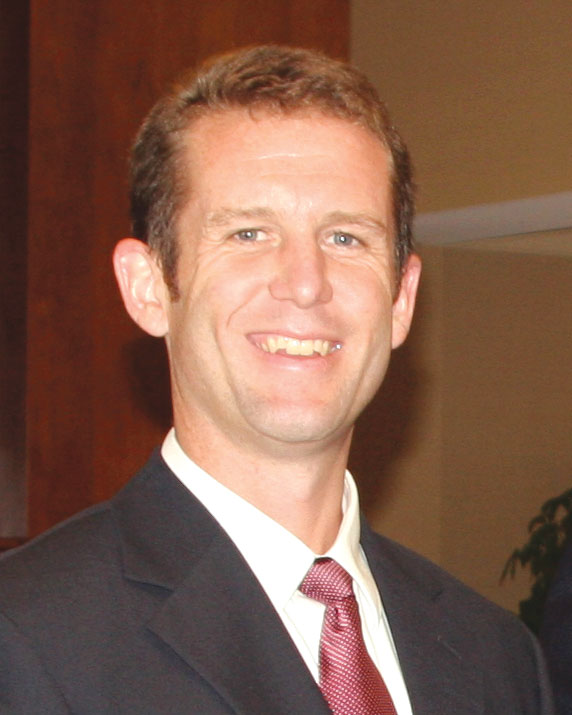Over the last five weeks I have attended three conferences on the state of the hotel industry including the "Distressed Hotel Assets Forum" in New York City, "The Lodging Conference" in Phoenix, AZ and most recently the "Distressed Hotel Conference" in Crystal City, VA. The three conferences generally reflected the same theme - the hotel industry is facing enormous challenges and the worst is yet to come.
In February 2008 the hotel business started a revenue per available room (RevPar) decline that continues to this day. There are many factors negatively impacting the hotel industry and no easy solutions. One significant factor was the rapid proliferation of new room supply from 2005 through 2008, which was caused by generous lending practices, over leveraging and the low cost of capital. In addition, the meltdown of the financial system in the Fall of 2008 caused massive layoffs, cut backs in business and leisure travel and the near death of unchecked expense accounts and group travel. To lure customers back to hotels, operators began slashing rates causing unprecedented declines in Average Daily Rates (ADR). The result is a perfect storm of increased supply, decreased demand and the largest RevPar decline in history.
In order to illustrate the state of today's hotel industry, I've outlined a hypothetical case study below.
Hypothetical Case Study:
A hotel investor opened a nationally branded, 100-room limited-service hotel in October 2007 for $10 million (including land). The owner put in $2 million of equity including the land valued at $1 million and borrowed $8 million. The loan was 200 basis points over LIBOR, the interest rate that the banks charge each other for loans, for the first two years with principal and interest commencing October 2009. The appraisal forecasted the hotel to achieve a stabilized average occupancy of 65%, $125 ADR and $81.25 RevPar. The result:
* $2,965,625 Hotel Revenue
* $1,037,969 NOI
* $12,500,000 Hotel Value (8 cap)
In 2007, the math worked for everyone including the owner, appraiser and lender. But, upon flashing forward to 2009 the deal suddenly turns upside down. Actual operating results likely look more like this: 50% occupancy, $100 ADR and $50 RevPar. The result:
* $1,825,000 Hotel Revenue
* $547,500 NOI
* $4,376,000 Hotel Value (12 cap)
The owner is facing numerous challenges, including the inability to meet current debt coverage ratios and dealing with the impending increase in debt payments. In today's marketplace, the ability to refinance is extremely challenging and the prospect of improved financial performance in the near term is not great - especially if one of the last hotel projects financed in 2008 recently opened or is opening soon in the market. The hotel is now worth roughly 40% of the original appraised value and the owner is faced with an impending default. Additionally, cash flow is currently low with no reserves built up for the impending winter and spring seasons ahead. Paying the lender is not the only issue, the more dire reality is the inability to cover operating expenses, including payroll.
Summary:
As hotel owners and operators for third party hotel investors and our own hotel assets, Roedel Cos. isn't just hoping to survive in today's choppy fiscal seas. Instead, we've instituted an approach to help our clients and us to successfully navigate them. We remain focused on cash flow from operations - hotel revenue minus 100% of the fixed and direct operating costs. Our company utilizes a revenue manager to work with our hotel sales directors to maximize RevPar and increase market share, and we support our operators to carefully manage operating costs per rented room without sacrificing guest service. We forecast and track cash flow weekly thereby making the required adjustments. Finally, we maintain an internal Net Present Value (NPV) of every hotel asset and are prepared to present realistic 2010 hotel business plans to our investors and lenders based upon each asset's specific market dynamics.
Moving forward, we see both tremendous challenges and opportunities in the hotel industry. Unfortunately, cash flow from operations will continue to decline forcing many investors out of the hotel sector. At some point, lenders will clean off their balance sheets and offer quality hotels for significant discounts. Investors with sufficient capital and sound operating partners will purchase hotels well below replacement cost and make significant returns over the next three to seven years. In Roedel Companies' case, hotel investment, development and management is our only business and we remain committed to growing and expanding our clients' and our own hotel portfolios despite the current downturn. From our perspective, those who can invest in hotel assets should. Shortly the hotel industry will hit rock bottom and there will be nowhere else for it to go but up.
David Roedel is a partner with the Roedel Cos., LLC, Wilton, NH.
Tags:
The hotel business is facing enormous challenges: Owners, operators & lenders are all in it together
October 27, 2009 - Spotlights









